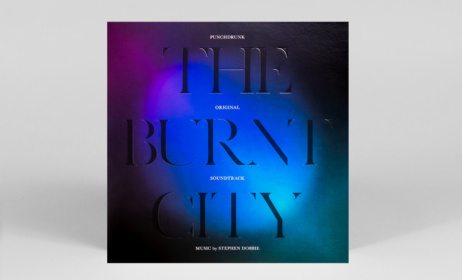Published on
June 15, 2023
Category
Features
Including Elliott Smith, Jarvis Cocker and Nico.
Although Wes Anderson is primarily known for his highly stylised visual aesthetic, a core element of his work has always been music. Lending a raw sense of humanity to the often pristine imagery, Anderson’s soundtracks have always opted for the less obvious, choosing deep cuts and eclectic sounds above surefire contemporary hits.
Ahead of the launch of the Asteroid City exhibition at 180 Studios, we take a look at some of the best soundtrack moments from Anderson’s illustrious career.
West Coast Pop Art Experimental Band
“I Won’t Hurt You”
(Isle Of Dogs)
A quintessential Wes Anderson crate-digging pick, West Coast Pop Art Experimental Band’s “I Won’t Hurt You” soundtracks Chief and Atari’s hunt for Spots across a series of bizarre landscapes. The scene gives a new life to the ’60s psychedelic rock band’s cut, pairing its inward-looking tenderness with the determination of the characters on-screen, all to a moving effect.
Peter Sarstedt
“Where Do You Go To (My Lovely)”
(The Darjeeling Limited)
Another of Anderson’s mid-century pop gems, Peter Sarstedt’s “Where Do You Go To (My Lovely)” repeatedly appears in The Darjeeling Limited. Appearing initially in Hotel Chevalier, a short film preceding The Darjeeling Limited, it’s the song of choice for Jack’s (Jason Schwartzman) romantic pursuits. The French-influenced cut tells a detailed narrative of a socialite, offering a mirror for Jack’s fictionalised romanticising of the women in his life.
Sigur Rós
“Starálfur”
(The Life Aquatic with Steve Zissou)
Sigur Rós’ awe-inspiring brand of post-rock is one ready-made for scoring film emotional apexes, yet the Icelandic band stands in a soundtrack almost entirely otherwise recorded by Seu Jorge. That makes “Starálfur” even more successful, reflecting a transcendent moment for the cast as they traverse space and time.
Nico
“These Days”
(The Royal Tenenbaums)
Nico’s cover of an early Jackson Browne track leans into the fragile whimsy that epitomises so many of Anderson’s most effecting soundtrack moments. Complementing a slow-motion meeting between The Royal Tenenbaums‘ Margot (Gwenyth Paltrow) and Richie (Luke Wilson), the song emphasises the monotony of their lives outside of being with one another.
Jarvis Cocker
“Aline”
(The French Dispatch)
Jarvis Cocker covers French singer Christophe’s 1965 song “Aline”. Cocker brings a sensual desperation to the cut which serves as a theme tune of sorts for The French Dispatch‘s self-aware Francophile style.
The Faces
“Ooh La La”
(Rushmore)
The Faces’ nostalgic pop anthem “Ooh La La” perfectly scores Rushmore’s bittersweet ending. Over the course of the film, we see Max’s (Jason Schwartzman) know-it-all ways result in repeated failure before he stumbles into growth and maturity. As an ode to the fallibility and naiveté of youth in love, it’s a beautiful way to say goodbye to Max and his first true love.
Françoise Hardy
“Le Temps de L’amour”
(Moonrise Kingdom)
Sam (Jared Gilman) and Suzy (Kara Hayward) escape their parents and adult authority figures to take a moment on the beach with a record that Suzy has brought along for the journey. The song of choice is Françoise Hardy’s seductive French pop cut, “Le Temps de L’amour”. The demure Frenchness of it all, a shorthand for a certain brand of adult sophistication, is the perfect contrast to two youngsters desperate to be perceived as such, whilst dancing awkwardly and adorably together against the world.
Love
“Alone Again Or”
(Bottle Rocket)
Anderson’s impeccable music taste has always been present in his filmography, even as far back as 1996’s Bottle Rocket. On a soundtrack with heavy hitters from The Rolling Stones and The Proclaimers, Love’s “Alone Again Or” scores a motel-based tryst between Anthony (Luke Wilson) and Inez (Lumi Cavazos). “Alone Again Or”‘s internal contradictions and overwhelming loneliness add a bleak haze to the lovers on screen.
Alexandre Desplat
“Mr. Moustafa”
(The Grand Budapest Hotel)
Collaboration with Alexandre Desplat has seen Anderson’s sonic palette expand, with the composer contributing scores to more recent movies such as The Grand Budapest Hotel and The French Dispatch. Maintaining the quirky looseness of many of Anderson’s lyrical pop picks, Desplat’s compositions add a sense of grandiosity to proceedings, an element that has become more dominant in Anderson’s later visuals. “Mr. Moustafa” is a key example with its twinkling pianos and bouncing plucking sounds, lending the film a sense of intrigue and playfulness.
Elliott Smith
“Needle In The Hay”
(The Royal Tenenbaums)
It’s impossible to discuss the musical moments of Anderson’s work without the holy grail of effective soundtracking, “Needle In The Hay” in The Royal Tenenbaums. In the years since Elliott Smith’s death, his work has always been shrouded in its deeply raw, emotional context and Anderson’s prescient use of “Needle In The Hay”, two years before Smith’s passing, makes for a gut punch upon repeated viewings. To quote Richie, “of course it’s dark”.
The Asteroid City exhibition runs at 180 Studios from June 17 to July 8. A special vinyl release from the Asteroid City soundtrack will be available exclusively at the exhibition limited to 1000 copies.





